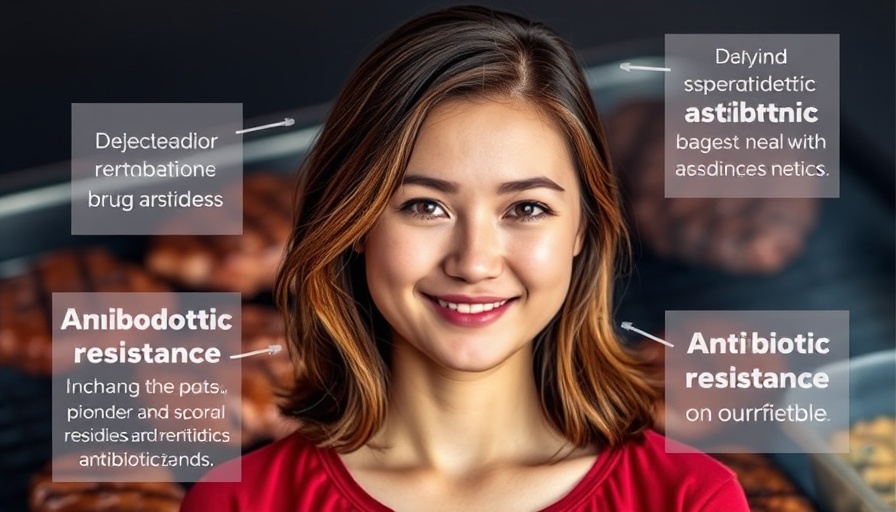
The Hidden Risks of Antibiotic Residues in Your Meat
As more consumers lean towards health-conscious choices, the food they eat has come under increasing scrutiny. Recent discussions reveal alarming insights regarding drug residues in meat and their potential impact on antibiotic resistance. In examining the assertion by the World Health Organization that greater volumes of antibiotics are administered to livestock compared to those prescribed to human patients—to the tune of significantly more—it's clear that a concerning trend is emerging in food safety and public health.
In 'Drug Residues in Meat and Their Effect on Antibiotic Resistance', the discussion dives into public health concerns surrounding antibiotic usage in livestock, exploring key insights that sparked deeper analysis on our end.
What is Antibiotic Resistance?
Antibiotic resistance occurs when bacteria evolve and no longer respond to the drugs designed to kill them, posing serious hazards worldwide. The consequences can be dire, leading to increased morbidity, mortality, and healthcare costs. Seeking to prevent disease and promote faster growth in livestock, antibiotics are misused on farms, setting off a chain reaction of resistance that extends beyond animal health into human populations. As the UK’s Chief Medical Officer noted, any misuse of antibiotics in agriculture can effectively be a “death warrant for a future patient.”
Dr. Greger’s Dire Warnings
Dr. Michael Greger, a prominent advocate for public health, has raised awareness about these issues, emphasizing that the data supporting the connection between livestock antibiotics and human drug resistance is robust. The debate is often framed with two opposing sides; on one side, extractors from formidable health organizations advocate for stricter regulations, while on the opposing front, industry representatives downplay the seriousness of drug residues. The imbalance of expertise raises questions about whose interests are prioritized in the production of our food.
Regulatory Shortcomings: Why Are Harmful Residues Slipping Through?
Despite the efforts by agencies such as the USDA and FDA, recent reviews have uncovered troubling lapses in monitoring practices that should safeguard consumers. In fact, the U.S. Inspector General warned that these agencies failed to effectively protect the U.S. food supply from drug residues, pesticides, and heavy metals, allowing potentially contaminated meat to reach supermarket shelves. Alarmingly, without established threshold values for many hazardous substances, the risks to public health amplify.
Do Cooking Methods Eliminate Drug Residues?
While the intuitive assumption might suggest that cooking meat would eliminate harmful residues, the reality tells a different story. Studies show that cooking often does not neutralize these substances and, in some cases, can even break down residues into more toxic forms. Cooking might not only fail to clear the risks but may inadvertently contribute to the infiltration of these dangerous components into our systems.
The Hidden Health Costs of Contaminated Meat
What dangers lurk in our meat as a result of these antibiotic residues? The implications can be severe, manifesting as gastrointestinal issues, allergic reactions, severe inflammation, and even cancer. Current research indicates that over 100 million pounds of meat contaminated with drugs are distributed to consumers each year in the United States alone—a staggering statistic that should ignite public discourse and policy reform.
Shifting Focus: Choices for Healthier Eating
Given the considerable risks associated with antibiotic-laden meat, consumers are prompted to reconsider their dietary habits. Opting for organic and sustainably raised animal products can mitigate exposure to harmful substances. Increased public advocacy for changes in farming practices is necessary, and as consumers, supporting local farmers who prioritize health and safety can divert the tide against these threats.
Conclusion: Take Action for Safer Food
With knowledge comes power. By educating ourselves about the implications of drug residues in meat, we empower not only our dietary choices but also our communities to advocate for systemic change. If you’re looking to make healthier choices, consider engaging with organizations advocating for transparent food practices. The health of our future may very well depend on it.
 Add Row
Add Row  Add
Add 







Write A Comment